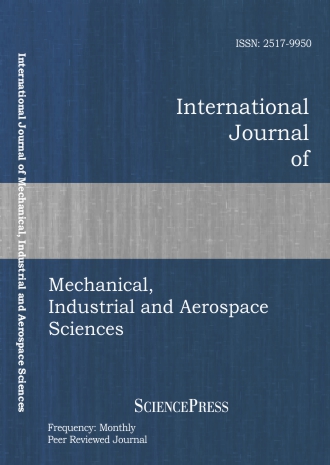
Scholarly
Volume:4, Issue: 10, 2010 Page No: 1010 - 1020
International Journal of Mechanical, Industrial and Aerospace Sciences
ISSN: 2517-9950
1709 Downloads
An Algorithm of Finite Capacity Material Requirement Planning System for Multi-stage Assembly Flow Shop
This paper aims to develop an algorithm of finite capacity material requirement planning (FCMRP) system for a multistage assembly flow shop. The developed FCMRP system has two main stages. The first stage is to allocate operations to the first and second priority work centers and also determine the sequence of the operations on each work center. The second stage is to determine the optimal start time of each operation by using a linear programming model. Real data from a factory is used to analyze and evaluate the effectiveness of the proposed FCMRP system and also to guarantee a practical solution to the user. There are five performance measures, namely, the total tardiness, the number of tardy orders, the total earliness, the number of early orders, and the average flow-time. The proposed FCMRP system offers an adjustable solution which is a compromised solution among the conflicting performance measures. The user can adjust the weight of each performance measure to obtain the desired performance. The result shows that the combination of FCMRP NP3 and EDD outperforms other combinations in term of overall performance index. The calculation time for the proposed FCMRP system is about 10 minutes which is practical for the planners of the factory.
Authors:
References:
[1] Nagendra, P.B. and Das, S.K., "Finite Capacity Scheduling Method for